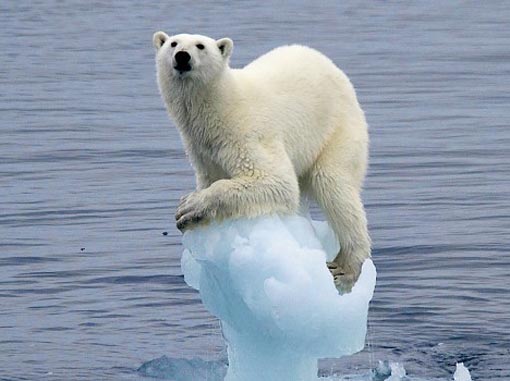You are hereArchive - Jul 2009 - blog
Archive - Jul 2009 - blog
Racing star in Tour de France '09 to win: Sebastien Joly thanks Lance Armstrong for support. Both cancer survivors

(quote)
Racing star. Cancer survivor. U.S. cycling legend & 7-time Tour de France winner Lance Armstrong returns to competition primarily to promote his foundation against cancer. He has survived testicular cancer and retired from racing on July 24, 2005, but returned to competitive cycling in January 2009. Tour de France rider Sebastien Joly has thanked fellow cancer survivor Lance Armstrong for his support when he was diagnosed with the disease two years ago. Sébastien Joly (born June 25, 1979 in Tournon) is a French professional road racing cyclist. He was diagnosed with testicular cancer on June 25, 2007, the day of his 28th birthday. Now, both are courageously cycling in the on-going 96th Tour de France cycling race (July 4-26) over 196.5 kilometers (122 miles) with start in Marseille and finish in La Grande-Motte, southern France. Among the 21 stages, there are 7 mountain stages, ridiculously difficult, which make the legend of the Tour.
World #1 tennis player Federer wins record 15th Grand Slam at Wimbledon: "There's no finish line. Far from done."

(quote)
Roger Federer (born 8 August 1981) is a Swiss professional tennis player. He is currently ranked world No. 1, having previously held the number one position for a record 237 consecutive weeks. Many sports analysts, tennis critics, former and current players consider Federer to be the greatest tennis player of all time. Federer holds numerous male singles records, the most notable of which is winning an all-time record 15 Grand Slam titles, including a career Grand Slam. Federer has played an unprecedented 20 career Grand Slam finals, and as of July 2009 Federer has reached the semi-finals (or better) of the last 21 consecutive Grand Slam tournaments, a streak spanning over five years. As a result of his successes in tennis, Federer was named the Laureus World Sportsman of the Year for four consecutive years (2005–2008).
"Earth Song" by Michael Jackson'95: ..ever stop to notice/The crying Earth the weeping shores? ..we've drifted far
(quote)
"Earth Song" - written & composed by Michael Jackson, released on November 27, 1995. It centered around the destruction and rebirth of Earth and went on to receive a Grammy nomination in 1997. The song was a top five hit in most European countries. In the UK, it remains Jackson's best-selling single. "Earth Song" was not released as a single in the United States.
Lyric excerpts:
What about sunrise
What about rain
What about all the things
That you said we were to gain...
What about killing fields
Is there a time
What about all the things
That you said was yours and mine...
Did you ever stop to notice
All the blood we've shed before
Did you ever stop to notice
The crying Earth the weeping shores?
Aaaaaaaaaah Aaaaaaaaaah
What have we done to the world
Look what we've done
What about all the peace
That you pledge your only son...
What about flowering fields
Is there a time
What about all the dreams
That you said was yours and mine...
Did you ever stop to notice
All the children dead from war
Did you ever stop to notice
The crying Earth the weeping shores? …Aaaaaaaaaah…
I used to dream
I used to glance beyond the stars
Now I don't know where we are
Although I know we've drifted far…Aaaaaaaaaah…
Hey, what about yesterday (What about us)
What about the seas (What about us)
The heavens are falling down (What about us)
I can't even breathe (What about us)
What about the bleeding Earth (What about us)
Can't we feel its wounds (What about us)
What about nature's worth (ooo,ooo)
It's our planet's womb (What about us)
What about animals (What about it)
We've turned kingdoms to dust (What about us)
What about elephants (What about us)
Have we lost their trust (What about us)
What about crying whales (What about us)
We're ravaging the seas (What about us) read more »
Truth self-evident. July 4's quest: which's more challenging for US, independence from Great Britain or from debt?

(quote)
*update*
Real Time U.S. National Debt Clock
The National Debt Clock is a billboard-sized running total display which constantly updates to show the current United States gross national debt and each American family's share of the debt. The National Debt Clock It is currently installed on the western side of One Bryant Park, west of Sixth Avenue between 42nd and 43rd Streets in Manhattan, New York City. It was the first debt clock installed anywhere.
WHAT IS THE NATIONAL DEBT TODAY?
$23,116,130,259,152
That's $70,008 for every single person in America.
America's growing debt is the result of simple math — each year, there is a mismatch between spending and revenues.
U.S. National Debt is $11.5 trillion (updated 1 July 2009) and has continued to increase an average of $3.91 billion per day since September 28, 2007! Canadian Prime Minister Stephen Harper called the U.S. deficit "dangerous". Canada's deficit is short-term and not structural.

Canadian Prime Minister Stephen Harper called the U.S. deficit "dangerous" read more »
Earth has a fever? Rising sea temperature near worst-case prediction. Bear clings to cracking ice. Street under water

(quote)
The ocean is warming about 50 percent faster than reported 2 years ago, near the worst-case predictions of the 2007 report by the United Nations' Intergovernmental Panel on Climate Change. The heavy rain & severe flooding paralyses central Europe: houses were swept away by rising floodwaters. In England and Wales, around 5 million people in 2 million properties live in flood risk areas.
Rising ocean temperatures near worst-case predictions
The ocean is warming about 50 per cent faster than reported two years ago, according to an update of the latest climate science. A report compiling research presented at a science congress in Copenhagen in March says recent observations are near the worst-case predictions of the 2007 report by the United Nations' Intergovernmental Panel on Climate Change. In the case of sea-level rise, it is happening at an even greater rate than projected - largely due to rising ocean temperatures causing thermal expansion of seawater.























